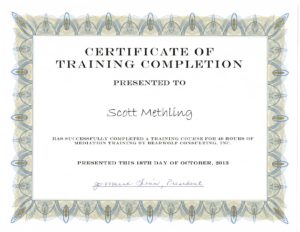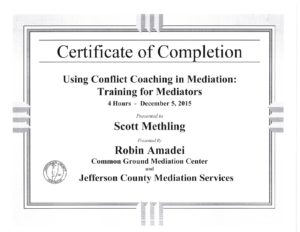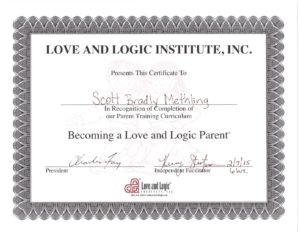Parenting Coordinator / Decision Maker Services
Quick Responses to Your Family's Needs
A Parenting Coordinator / Decision Maker (PC / DM) assists with turning disagreements into productive conversations and uses strategies resulting in solutions to unresolved issues..
If you choose to utilize the arbitration role, we work with all parties to resolve any dispute regarding the kids. Including money issues.
Stop living in limbo for your children’s sake.
The parenting coordinator is facilitative, and immersive, attempting to understand the issues, family dynamics, and needs of the children. This process guides the parties in coming to a consensus on all items regarding implementing the parenting plan. Typically, the parenting coordinator will see opportunities regarding communication styles between the parents and strive to assist with those issues.
Our rate is $90/hour per party. Deposit is $800. Fees may be allocated based on many factors.
In the role of PC/DM, our job is to resolve issues between the parents to gain consensus. The PC / DM role is to facilitate the parties to discuss and settle agreements. If the parties still cannot agree, the next phase, the decision-making role begins.
The most important concept to understand is the overwhelming reliance on the parenting coordinator’s role to uphold the best interests of the child (BIOTC).
The best part of the PC/DM role with SB Mediation Center. We are an attentive, resolution focused PC/DM firm that is understanding that your disputes are very difficult for your children.
Is The PC / DM Appointed Or Can We Choose One?
A PC/DM may be appointed through a few different methods.
* The first method is agreeing to appoint a PC / DM. Agreeing to a Parenting Coordinator / Decision Maker to help resolve issues after your divorce can save you time, money, and emotional stress for everyone involved.
* The second method is when each party proposes to the courts recommending three candidates to help ensure neutrality, and then a judge appoints the PC/DM.
The Reasons For Considering A Parenting Coordinator Are:
- The parties have failed to adequately implement the parenting plan
- Mediation is not appropriate for the case
- Mediation has been unsuccessful in the past
- There may be communication issues between the parents
- There may be a history of domestic violence, substance abuse, excessive litigation not leading to resolution, or mental health issues
The Main Objectives Of The Parenting Coordinator Are:
- Attempt to reduce conflict and chronic litigation between the parties
- Help parents implement their parenting plan
Because of neutrality, our office staff can answer any questions you may have regarding a parenting coordinator, decision-maker, or a combination of both through a phone call or email. We are happy to help.
The Process Of Parenting Coordinator / Decision Maker
What to expect:
- A deposit will be required before the session starts
- The parties must provide any current parenting plan orders that are active and in force
- After the session if a problem arises, contact the Parenting Coordinator, not the other parent, to discuss your issue. The PC will then arbitrate with the other party to work to consensus.
- When there is a stalemate or lack of agreement we change into the decision-making role. We will notify the parties upon changing of our role from the PC to the DM.

Parenting Plan Implementation Tools Include:
- Facilitating negotiations between the parents concerning child-related disputes
- Providing education about children’s needs and development, communication and conflict management skills
- Raising parental skill levels in collaborative or parallel planning and decision-making for their children
- Assisting parents to co-parent in a way that promotes the well-being of the children
Parenting Education
Parenting education is an additional component of coordination. Much of this work revolves around communication between the parents.
The coordinator may partner with other collateral professionals involved with the children and parents to gather information, identify issues and problem solve with the parents.
The Role Of Decision Maker
The decision-maker role is the second half of the PC/DM role.
The role of the PC/DM has two distinct roles. The second role is the decision-making component. The decision-making component could be divided into two distinct functions of decision-making and arbitration, creating three roles in total.
This role is employed when the parties fail repeatedly to comply with the parenting coordinator’s recommendations, conflict doesn’t subside, where the parenting coordinator has been ineffective. This appointment is created to resolve parenting issues not related to finances. Finances will be addressed later in this article.
When the role of the parenting coordinator begins transitioning to a decision-maker the parties will be notified of the change.
The decision-maker’s arbitration appointment is to handle all disputes between the parties without the need for the court’s involvement.
Here is an example of parenting guidelines for the PC/DM process.
Duties Of The Decision Maker
With consent from all parties, the court may appoint an arbitrator to resolve disputes concerning minor or dependent children. Examples of disputes:
- Including but not limited to parenting time
- Non-recurring adjustments to child support
- Disputed parental decisions
Both roles must be understood by the decision-maker with great care. The decision-maker is making permanent changes to the family’s lives. There must be an understanding of the statutes of the specific family dynamic, the decision-maker is attempting to remedy.
Key Points To Remember About The Parenting Coordinator / Decision-makers Role
- The appointment is at least two years. More if all parties agree to an additional term.
- Only the parenting coordinator may be ordered without the agreement of the parties.
- The decision-maker decisions normally take two weeks at the longest. The courts may take 2-3 months.
- All decisions may be de novo reviewed by the courts within 30 days, filed by a party, to the courts if a party is unhappy with the decision of the decision-maker.
- All roles are confidential. All parties are to abide by this provision.
- The roles are quasi-immune to punishment or penalty unless there is gross misconduct by the parenting coordinator/decision-maker.
- All roles the parenting coordinator/decision-maker must disclose any relationship with any of the parties or other collateral persons/entities to the case.
- All decisions shall be written and filed with the courts and given to the parties within 21 days.
- Decisions/awards are immediately enforceable.
- There shall be no ex-parte (private communication) between the parenting coordinator/decision-maker and the courts.
- Unless there is agreement from all parties to have the parenting coordinator/decision-maker withdraw, the courts would have to intervene. Removal may be difficult if one party seeks the withdrawal.
- The parenting coordinator/decision-maker must have significant training in regards to, empathy, emotional intelligence, cultural awareness, socioeconomic status, family dynamics and listening to hear actively at all times.
- Quick resolutions, not waiting months for a court date, and a true conflict mitigation process.
How We Approach Confidentiality Of Your Case, Regarding Litigation.
It is a confidential process throughout. We will not speak to anyone during or after our appointment.
At the beginning of the appointment, we go over the agreement. Along with many items, confidentiality is discussed with the parties. In addition, the parties sign the agreement. Being contacted by the pro se (unrepresented) parties to break the confidentiality of the appointment of the PC/DM is understandable. It is not a negotiable provision. It is in the statutes CRS §14-10-128.1. It expressly states it is confidential. See below.
(7)(c)(I) In a judicial proceeding, administrative proceeding, or another similar proceeding between the parties to the action, a parenting coordinator shall not be competent to testify and may not be required to produce records as to any statement, conduct, or decision that occurred during the parenting coordinator’s appointment to the same extent as a judge of a court of this state acting in a judicial capacity.
For the CRS §14-10-128.3, it is this statute. (7)(c)(I) In a judicial proceeding, administrative proceeding, or another similar proceeding, a decision-maker shall not be competent to testify and may not be required to produce records as to any statement, conduct, or decision, that occurred during the decision-makers appointment, to the same extent as a judge of a court of this state acting in a judicial capacity.
The only way the PC/DM confidentiality may be broken is reporting to law enforcement or child protective services.
With that said. We are here to promote collaboration and harmony. We might not be successful every time. Having the PC/DM interview with anyone about the case is not going to help the children.
We will not speak to anyone about the case even with the agreement of the parties. It adds a level of finality and confidentiality to the PC/DM process that really promotes our process away from litigation.
Highly recommended.
Our experience based on years of training, hard work, and passion, as well as familiarity with divorce, dividing up the marital estate and child custody/supervised parenting time issues. You’ll find all that and more at SB Mediation Center.
Please have contact information for all parties before contacting us.













